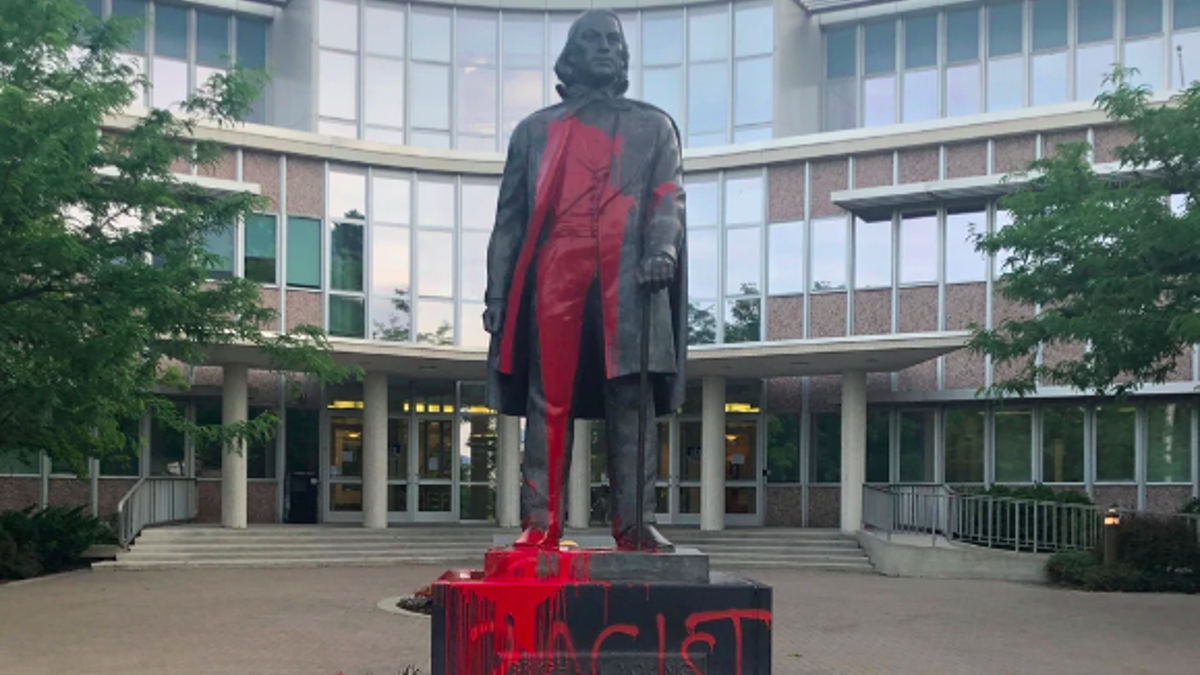One thing I’ve been observing lately is that having access to divine truth, divine authority, divine wisdom does not make us immune to error. I’ve encountered a number of people who are humble, loving, compassionate, intelligent, discerning, and yet who seem completely wrong-hearted and wrong-minded on a host of various issues.
For example, I know people who are very in tune with the Spirit, have regular spiritual manifestations, live out their covenants faithfully, and yet have very wrong views on immigration and refugees (believing that unchecked immigration is an economic drain in our society, and the current refugee crisis to be a manufactured attempt to infiltrate our society). Or on climate change (believing that human activity has no effect on the earth’s climate, or that whatever effect is does have can be safely ignored and that God will sort it all out without our help). Or a host of other issues.
I know others who I admire just as much who are dismissive of modern science and modern medicine, preferring naturopathic remedies that strike me as little different from snake oil. And some of these are unforced errors. There’s no prevailing cultural myth that excuses someone for believing that some kinds of herbal tea cure cancer.
I could go on. But my point is that spiritual maturity does not necessarily correlate with a privileged view of the world in every (or even most) respects. Being closer to God doesn’t always make us better at being right. We are still subject to all the biases and foibles of mortality, which includes a brain that is subject to a host of cognitive biases and a culture that comes with plenty of blinders.
God’s project isn’t to make us right, it’s to make us holy. And I sometimes suspect there’s less of a correlation between the two than we realize, at least here on earth.
What makes our Church true is not that our doctrines and teachings line up 100% with some abstract divine truth all the time. It’s that we are lead by authorized servants of God. That doesn’t make us right all the time as a faith community. But it makes us God’s people. And God’s people throughout time — from ancient Israel to the Book of Mormon to today — have been and can be wrong on lots of things.
We need to become comfortable with paradox. In modern, Western culture, we hold the idea of non-contradiction as paramount. Two seemingly contradictory statements cannot be true. However, eastern cultures often celebrate paradox, where seemingly contradictory truths are both held as vital and illuminating in their own ways.
Racism is a grave moral evil that alienates us from God. Brigham Young held racist views and engaged in racist behaviors. Brigham Young was a holy man chosen by God to establish His kingdom in the Rocky Mountains, laying us up in store and preparing us for our mission to be the salt of the Earth in preparation for His coming in glory.
From a modern, western view, those things can’t all be true. This is why we must demonize men like Thomas Jefferson or George Washington when we discover stains on their moral character, and subsequently treat them as unworthy of any admiration. It’s also why we reflexively defend admired and holy men from accusations of racism, treating those accusations as slander, as de facto evidence against their divine calling and mission (and thus something that must be refuted).
But from other cultural worldviews (outside of the western, modern worldview we are used to), there’s no reason why we must. I embrace both simultaneously: Brigham Young held racist views, did racist things, and was also a chosen prophet of God and a modern-day Moses.
The call among some members of the Church to rename Brigham Young University (or the Harold B. Lee building, the Ezra Taft Benson building, or the David O. McKay building), is incredibly short-sighted. Those who advocate for this are converts to a modern religion that asserts different priorities than the Church of Jesus Christ of Latter-day Saints.
Besides holding racist views, these men were prophets of God. That is foundational to our faith. Defacing their statues and wishing their names removed from our institutions is disloyal to our faith.
However, we can and still should acknowledge the racist views they held. There is nothing about our belief in these men as prophets that requires us to rebuff or even defend them against accusations of racism. Some of them really did hold racist views. Those views were wrong. And we should condemn racism in all of its forms. We can do this without adopting what C.S. Lewis called “chronological snobbery,” pridefully imagining us to be immune to the cultural biases and blinders we see in those of the past, patting ourselves on the back while sending verbal lashes towards the unenlightened past.
Because our day and age are saturated with similar moral perils to which many of us are blind or at least indifferent. What about factory farming? What about abortion? The callous disregard of refugees? A disdain towards religious freedom? The potential examples cut across tribal lines. In the great judgment day, none of us will be immune as the Great Judge strips away the clouds from our eyes and we see the tremendous and various evils we are all complicit in.
Our only hope is Christ. It has always been Christ, and His tremendous grace.
Let’s not excoriate divinely chosen, special witnesses of Christ simply because they, too, need that grace.

Wonderfully said. Thank you.